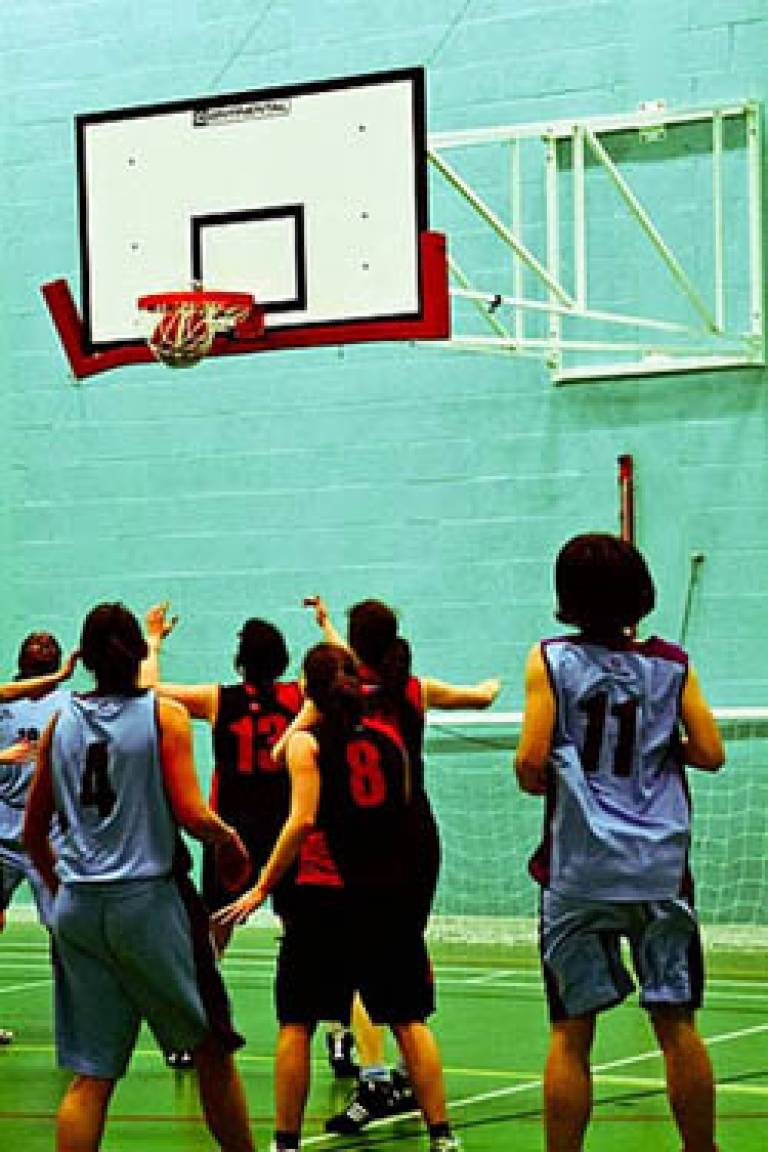Confidence key to increasing number of women engineers
6 July 2012
Despite similar career expectations on graduating, six months after finishing their studies just 39% of female graduates have engineering jobs compared to 50% of male graduates, according to new figures.

A new report, led by UCL Engineering, Katalytik and Oxford Research and Policy and funded by HE STEM, explores possible causes and cures for low numbers of women in engineering and technology subjects. Published today, the report - Jobs for the boys? - draws together new research into undergraduate attitudes, existing employment data, and in-depth interviews with employers to form best practice strategies.
One of the most striking findings of the report was that three quarters of 4,624 final year engineering students surveyed by the SET to Lead project reported expecting to work in engineering roles after completing their courses. This figure did not differ significantly based on gender; but, six months after graduation, Higher Education Statistics Agency (HESA) figures show that only 39% of female bachelor degree graduates entered roles in engineering and technology, compared to 50% of males. However, female students were more likely to be undertaking some further study.
A possible explanation for this difference is seen when students evaluated their own abilities - when asked if they had the technical skills that employers look for, 59% percent of men believed they did, compared to 45% of women surveyed.
Work placements or internships increased this number for both genders, although after this experience men still showed higher self-belief compared to women. General questions about confidence levels displayed the same tendency, as, for example, 87% of men compared to 75% of women expressed confidence that they would make a good engineer or technologist.
"Differences in confidence and assessment of ability between male and female engineering graduates persist despite the fact that women are more likely than men to graduate with first class or upper second class degrees, the majority of male and female students feel that women are treated equally by staff and fellow students, and women feel they get as much out of their courses as men.
Dr Jan Peters (Katalytik)
Dr Jan Peters, from the consultancy Katalytik, who compiled the report, said: "Differences in confidence and assessment of ability between male and female engineering graduates persist despite the fact that women are more likely than men to graduate with first class or upper second class degrees, the majority of male and female students feel that women are treated equally by staff and fellow students, and women feel they get as much out of their courses as men."
"However, although men surveyed did not feel as strongly as women that both sexes benefit equally from the course, and reported a belief that women integrate less well."
A small survey of employers also indicated that women perform as well as men during the interview and assessment process.
The
report also suggests some strategies for improvement. Students who took enhanced first degrees
(resulting in an MEng or an MSci qualification) were significantly more likely
to be in engineering and technology related roles six months after graduating,
with the figures for males and females similar at 90 and 87%, respectively.
Some employers suggested that may be lower confidence and lower performance in
group work in the case of females during assessment maybe be responsible for
the lower proportion of women applying and starting work in technical jobs.
Some instances of poor behaviour towards females by other candidates were cited at
assessment centres might also undermine women's confidence. Good employers
monitor gender throughout the application and recruitment process, make comparison on scoring and make
comparisons year on year.
SET to Lead has produced a set of resources to improve employability skills and create a positive, inclusive and respectful working environment, including a set of good practice guidelines for use in assessment centres. Materials and resources have also been developed in association with industry for use by academics when teaching leadership and team skills.
 Close
Close

